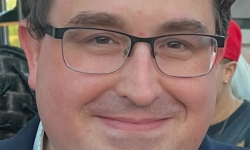Opinion | Suicide shows burned out coronavirus physicians need healing, too.

Two weeks ago, a New York City hospital physician died, not because of her COVID-19 diagnosis, but by suicide. The sad news of her demise shook me. This hero carried the stress of the pandemic, saw tremendous death in every shift, and witnessed colleagues get sick. She fell ill to COVID-19 and, like most doctors, was quickly back on the front lines. Her tragedy, like all suicides, was preventable.
COVID-19 has revealed a broken health care system that is failing patients and doctors alike. Now that we're in a pandemic, burnout is accelerating to severe depression, and even suicide.
Physicians are taught to be strong. We're instructed to not become too attached to patients by keeping a “healthy” emotional distance, but that’s only caused harm. Doctors are encouraged to neglect their emotional well-being for others. Facing life and death decisions at work, fear of malpractice claims, personal life struggles that conflict with work demands and pressures from administration, put physicians at high risk of burnout.
Job dissatisfaction has increased due to regulations on physician autonomy. More time is spent documenting than having face-to-face patient interaction. Many doctors are completing paperwork after hours and seeing patients every 15 minutes to keep up with revenue demands. Sleep deprivation and long hours are rites of passage. Just yesterday, an exhausted physician said he worked 12-hour shifts for seven days working with COVID intensive care patients. Rather than encouraging him to take a day of, his colleagues praised him for working so hard.
It’s not just the workload. Patients have unrealistic expectations of availability. I was covering the COVID unit, and after working five consecutive 12-hour night shifts, I was met with hostility from a patient. “You’re never available for an appointment!”
Patients often feel frustrated when they come in with their laundry list of issues and feel rushed — they don’t realize patients are scheduled every 15 minutes. Burned-out physicians create triple the number of medical errors, but the perception from many patients is, “She is such a good doctor. She is always at the hospital.”
Acknowledging the problems, health care organizations have invested in wellness programs. Meditation and mindfulness are great proposed solutions but they hardly scratch the surface of the root problem. A culture of wellness does not only mean yoga and mindful apps. It means a systemic change in the delivery of care. Legislative reform, a shift of public expectations and alleviation of the pressures of more responsibility are all needed.
Teaching physicians to be emotionally distant doesn’t help anyone. In the age of COVID-19, physicians are even more isolated from their families and friends. Many physicians are being laid off and or having their salaries reduced, despite how hard we've worked during the pandemic. We are seeing the holes in the system and feel defeated to do anything about it.
Having an empathetic heart is why we go into medicine. We always put patients first. But it’s time the system starts caring about us as well. There needs to be a change in medical culture, patient expectations and reimbursement of health care to improve physician burnout. Physicians are humans, too. Physicians can be patients, too.
See what new members are saying about why they donated to Bridge Michigan:
- “In order for this information to be accurate and unbiased it must be underwritten by its readers, not by special interests.” - Larry S.
- “Not many other media sources report on the topics Bridge does.” - Susan B.
- “Your journalism is outstanding and rare these days.” - Mark S.
If you want to ensure the future of nonpartisan, nonprofit Michigan journalism, please become a member today. You, too, will be asked why you donated and maybe we'll feature your quote next time!




